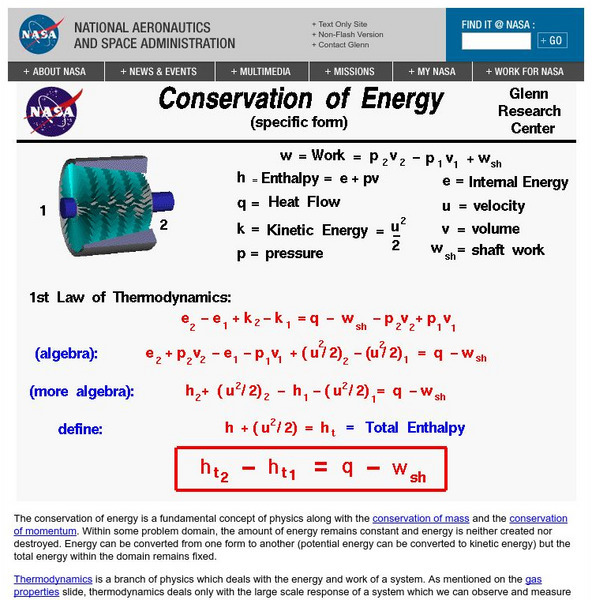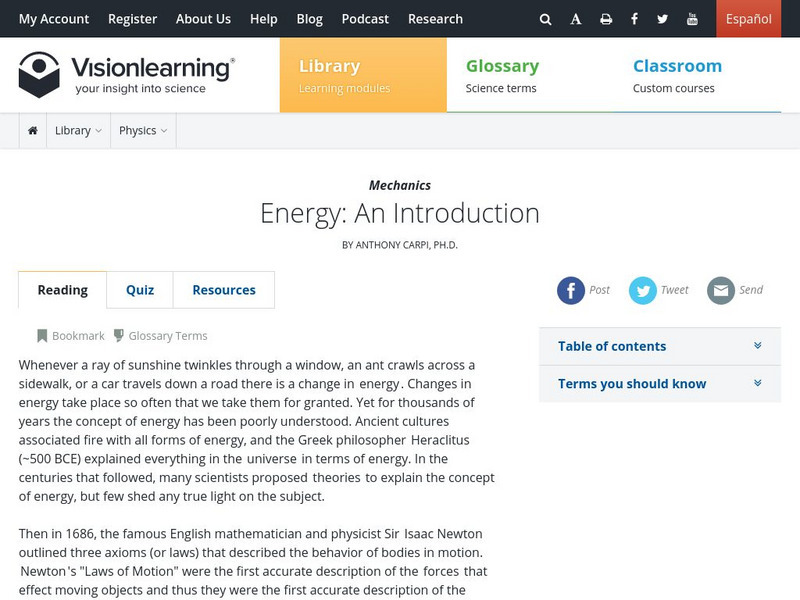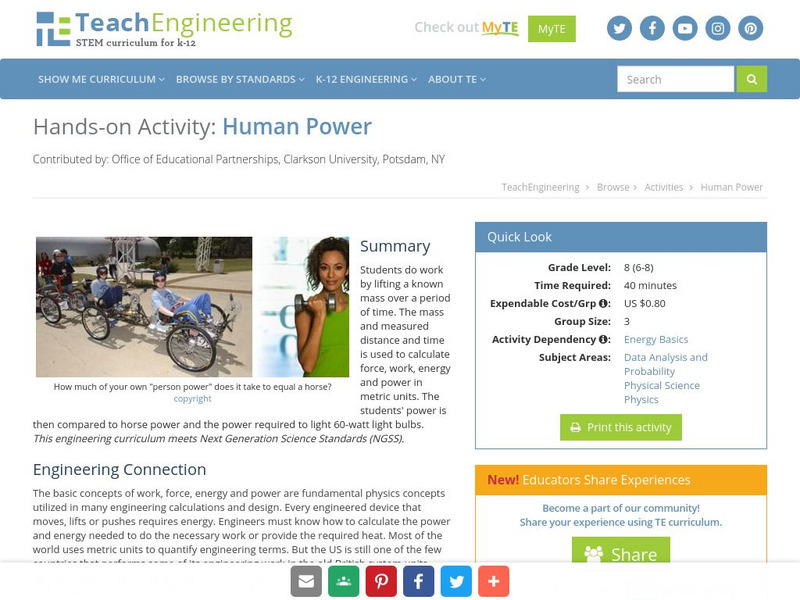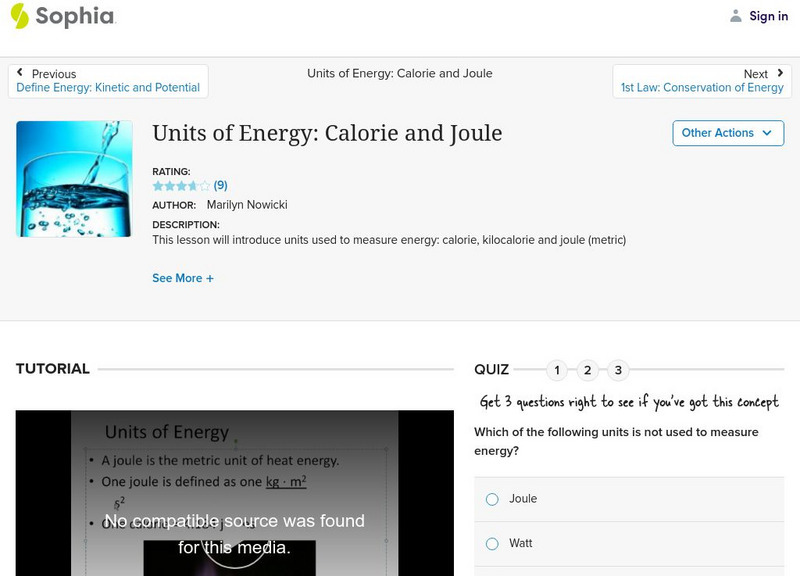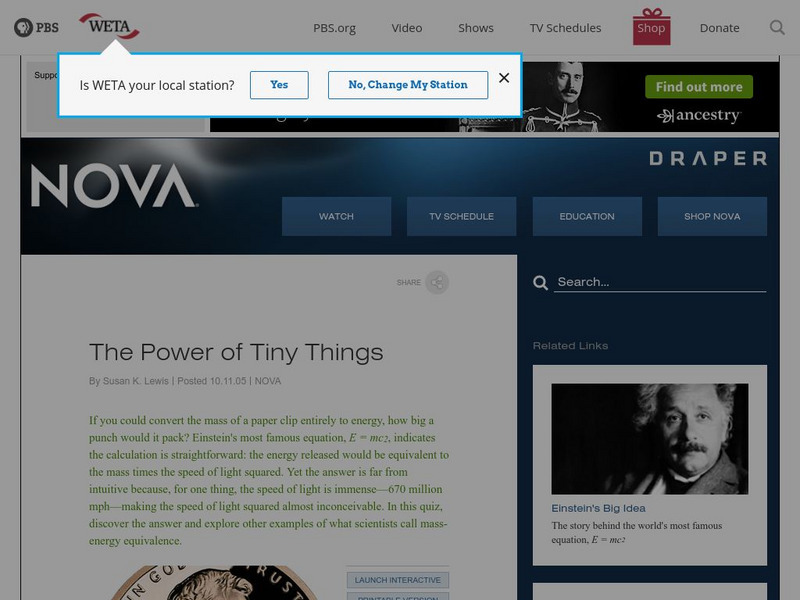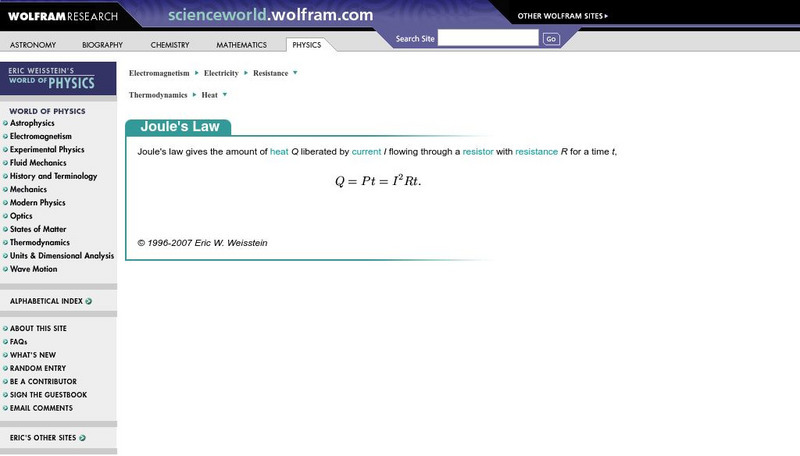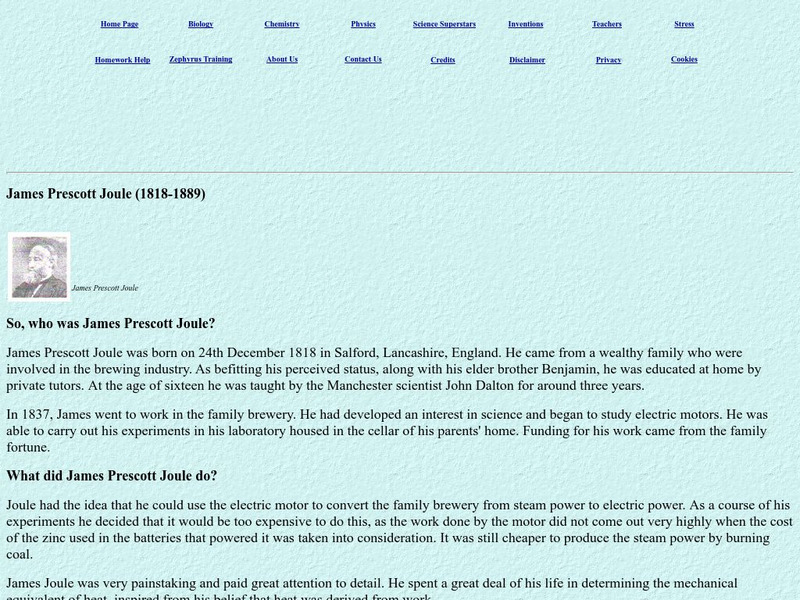Hi, what do you want to do?
Curated OER
Applications of Energy to the Real World
As an introduction to the concept of energy, this interesting and informative resource would be a terrific addition to a unit. Although there is quite a bit of information presented about kinetic energy, potential energy, and related...
Curated OER
What is Work?
In this work worksheet, students will match vocabulary words with definitions: joule, Newton, force, and work. Then students will answer 8 problems based on the equation: work = force x distance.
Curated OER
Work and Power
In this power worksheet, students use the equations of power and work to complete 4 word problems. Students use the standard units of watts and joules.
Curated OER
Mr. Biando's Lab Word Search
In this physics worksheet, students locate and identify various vocabulary terms related to physics. There are six words to locate in the puzzle.
Curated OER
Ramp and Review
Students participate in an activity in which they observe a ball as it rolls down an incline into a cup. They take measurements and use equations that describe the concepts of mechanical energy, work and power, momentum, and friction. ...
NASA
Glenn Research Center: Conservation of Energy
From the Glenn Research Center at NASA, read about the law of conservation of energy. Included are formulas and many links to key terms.
Vision Learning
Visionlearning: General Science: Energy: An Introduction
Instructional module focusing on energy. Discussion includes forms of energy, conservation of energy, and the laws of thermodynamics. Site also includes an interactive practice quiz and links relating to the topic.
TeachEngineering
Teach Engineering: Human Power
Students do work by lifting a known mass over a period of time. The mass and measured distance and time is used to calculate force, work, energy and power in metric units. The students' power is then compared to horse power and the power...
University of California
University of California Los Angeles: Force, Work and Power
Describes the definition and relationships between force, work and power. Includes nice drawings to increase conceptual understanding.
National High Magnetic Field Laboratory
Magnet Academy: James Joule
James Prescott Joule experimented with engines, electricity and heat throughout his life. Joule's findings resulted in his development of the mechanical theory of heat and Joule's law, which quantitatively describes the rate at which...
Sophia Learning
Sophia: Units of Energy: Calorie and Joule
A narrated screencast which discusses various units used to measure energy: calorie, kilocalorie, and joule. [2:22]
Sophia Learning
Sophia: Work: Lesson 2
This lesson will explain the concept of work, and show that it can be calculated using force and distance.
Physics Classroom
The Physics Classroom: Basic Terminology and Concepts: Kinetic Energy
In this site from the physics classroom, kinetic energy is defined and discussed. The equation for its computation is also given and practice computation problems are given.
PBS
Pbs Nova: The Power of Tiny Things
Have you ever wondered what would happen if you converted the mass of a paper clip into an amount of energy? In this informative quiz, discover the answer, and explore other examples of mass-energy equivalence.
University of Waterloo (Canada)
University of Waterloo: James Prescott Joule
Lists the most important scientific contributions of James Prescott Joule. Provides some biographical details. Part of a set of History of Thermodynamics course notes.
Wolfram Research
Wolfram Science World: Joule's Law
This site briefly defines Joule's Law. A formula is provided and links to related terms.
Other
Zephyrus James Prescott Joule
Short biographical site dedicated to James Prescott Joule (1818-1889).
Ducksters
Ducksters: Physics for Kids: Energy
Kids learn about the science behind Energy including its different forms such as chemical, electrical, heat, and gravitational. When is energy considered renewable or nonrenewable?
Ducksters
Ducksters: Physics for Kids: Kinetic Energy
Kids learn about kinetic energy in the science of physics. The energy of motion can be calculated using mass and velocity. The standard unit is the joule. How it is different from potential energy.
Ducksters
Ducksters: Physics for Kids: Potential Energy
Kids learn about potential energy in the science of physics. The energy of position and state can be calculated using mass, gravity, and height. The standard unit is the joule. How it is different from kinetic energy.
Victorian Web
Victorian Web: Conservation of Energy and Thermodynamics
This site is about the trace of the evolution of historical ideas concerning energy conservation and the laws of thermodynamics.
Curated OER
University of Waterloo: James Prescott Joule
Lists the most important scientific contributions of James Prescott Joule. Provides some biographical details. Part of a set of History of Thermodynamics course notes.
Curated OER
University of Waterloo: James Prescott Joule
Lists the most important scientific contributions of James Prescott Joule. Provides some biographical details. Part of a set of History of Thermodynamics course notes.
Curated OER
University of Waterloo: James Prescott Joule
Lists the most important scientific contributions of James Prescott Joule. Provides some biographical details. Part of a set of History of Thermodynamics course notes.










